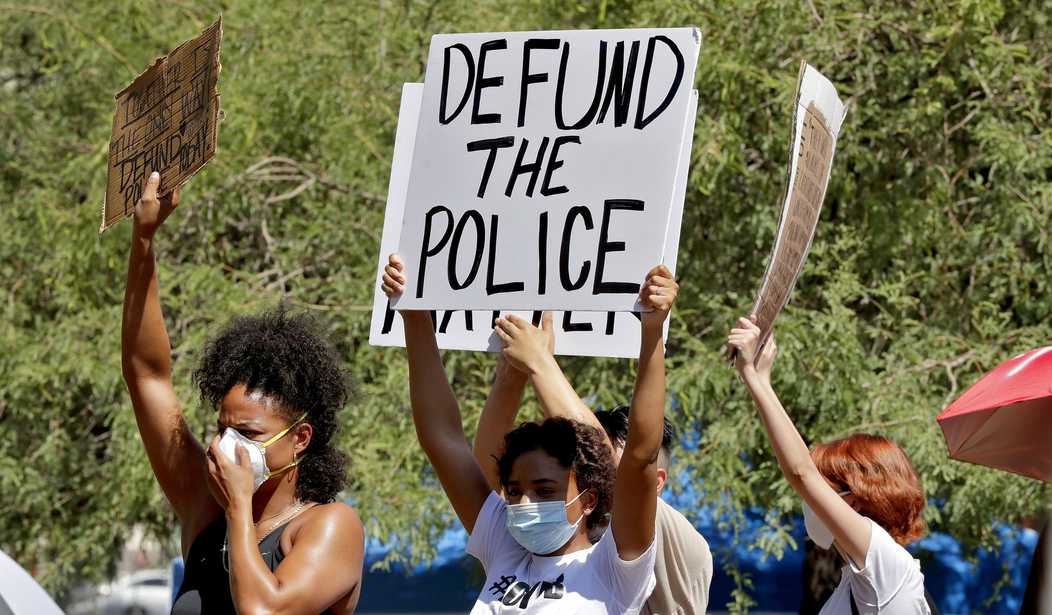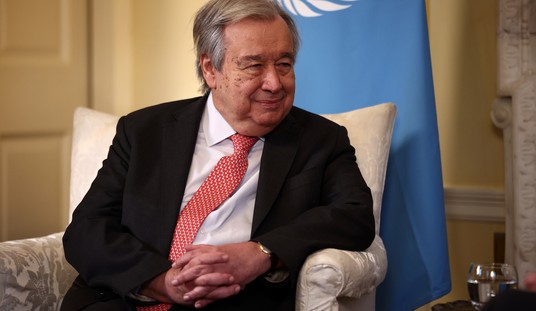As reported here by my RedState colleague Alex Parker, yesterday, the City of Minneapolis agreed to pay the family of George Floyd — and their lawyers — $27 million to settle wrongful death claims made in connection with Floyd’s death while being taken into custody in May 2020. The announcement was followed by a press conference held by the Floyd family — and their lawyers — talking about the claims and the settlement reached, calling it the largest payout from a civil rights claim settled prior to trial.
Live now: Press conference from the Floyd Family as the city of Minneapolis settles to pay the family $27 million for George Floyd's killing by city police officer Derek Chauvinhttps://t.co/NQpGSA3vzk
— Twin Cities Citizens' Report (@TwinCityReports) March 12, 2021
Typically, a settlement in this kind of case would include a provision that the issues of liability and damages remain disputed — there has been no trial with a neutral fact-finding jury or judge — and the decision to settle the case is not deemed as an admission of liability by the defendant who is paying the plaintiff. That doesn’t seem to have been the case here based on the public statements of each side following the announcement.
More importantly, however, there is a trial currently taking place in Minneapolis where the process of finding a “neutral fact-finding jury” is underway — the criminal prosecution of former MPD Officer Derek Chauvin.
Yesterday was Day 5 of jury selection in Chauvin’s case, taking place right in downtown Minneapolis — the same place where the Minneapolis City Council just voted to pay $27 million to the ALLEGED victim of Chauvin’s crime.
Juries are selected to make that decision.
The process of selecting a jury for Chauvin’s case began with sending out a lengthy juror questionnaire to hundreds of people that asked them to provide information on what they knew about the incident involving George Floyd, whether they had seen the video, whether they had formed any opinions about the episode or Chauvin, whether they had views on police reform, etc.
One question not asked in the questionnaire was whether they were aware of any settlement reached between Floyd’s family and the City of Minneapolis with regard to the events leading up to Floyd’s death. That would have been important to know — if the settlement had taken place prior to the trial getting underway.
There are often occasions in federal court cases where criminal prosecutions and civil actions involving the same events are pending in court at the same time. It is axiomatic that in those circumstances, there is a “stay” imposed by the court on the civil action while the criminal case proceeds to a disposition. This is to prevent witnesses from being forced to testify under oath in two proceedings running simultaneously, with two different sets of attorneys, and under two different sets of rules. For example, witnesses in a civil case can be deposed, and questions in a deposition can seek to elicit information that is not necessarily admissible under the Rules of Evidence.
But in federal criminal cases, there are no depositions allowed. The defense is not allowed to take depositions under oath of prosecution witnesses, and in a courtroom where the witness testifies under oath before a jury, the federal judge makes sure that the testimony and other evidence presented is admissible under the rules of evidence.
It would have been simple for the attorneys representing the City of Minneapolis in the wrongful death action brought by Floyd’s family to simply ask the judge on the case to stay all proceedings pending the outcome of Chauvin’s trial. There are two compelling reasons to have done so.
First, Chauvin is accused of a crime but he’s not been convicted of having done anything illegal. By settling the civil case the City of Minneapolis is sending a signal to the population of Hennepin County — the jury pool — that Chauvin did something wrong, and maybe illegal. Chauvin has a constitutionally guaranteed right to the presumption of innocence — a presumption that was just stepped on in a very public way while a jury is being selected to judge his guilt or innocence.
Second, a component of Chauvin’s legal defense is that his actions with respect to Floyd complied with the training he had been given. That fact might have actually worked against the City of Minneapolis in the civil case brought by Floyd’s family, but it also could have provided a basis for a defense to that suit — that Chauvin’s action was an acceptable tactic based on police training, and expert testimony could establish that the tactic as used by Chauvin is not “life-threatening”. Thus, the “cause of death” with regard to Floyd must be found elsewhere — his death was not caused by Chauvin’s knee on the side of Floyd’s neck.
If a jury accepted that defense, there is a good chance that Chauvin would be acquitted of all the charges. Floyd had a lethal level of Fentanyl in his blood — a drug that suppresses respiration. Combined with other risk factors in Floyd’s overall poor health, there was no way for Chauvin to know that the use of a standard police submission technique could lead to Floyd having a heart attack caused by respiratory arrest.
In layman’s terms — expressed as best I can based on my years as a prosecutor — the primary factor in Chauvin’s actions that contributed to Floyd’s death was the fact that Floyd was placed on his stomach with his hands cuffed behind his back while in an agitated condition. Chauvin having his knee across the side of Floyd’s neck did not cause any injury to his airway or otherwise interrupt Floyd’s ability to breathe. It looks bad on the video, but it did not cause Floyd’s death. Cause and effect are the relevant legal concerns, not appearances.
The outcome of Chauvin’s trial SHOULD come down to a question of whether keeping Floyd on his stomach, with his hands cuffed behind his back, during several minutes while Floyd was complaining that he could not breath — which he started to complain about long before being placed on the ground on this stomach — is a “criminal” act by a police officer.
The answer to that question seems self-evident.
I have made the suggestion on Twitter that I have a suspicion that Judge Cahill, who is presiding over Chauvin’s trial, is engaged in a process of not just picking a jury, but also establishing a factual record about the available jury pool in Hennepin County from which he must draw prospective jurors.
On November 3, 2020, Judge Cahill entered an order on the defense motion for change of venue which stated “Defendants’ motions for change of venue are preliminarily DENIED.” It went on to say that the Court would “rehear the motions subsequent to the presentation of additional evidence and briefs on the issue.”
So far as I can find, Judge Cahill has never returned to this issue.
My suspicion is that the process of jury selection is the “additional evidence” that he referred to in his prior order. Rather than grant/deny the motion for change of venue based on hypotheticals about whether unbiased jurors might be found, he’s engaging in the process of selecting a jury fully aware that both attorneys are being forced to exercise peremptory challenges on some jurors that in any other case would be excused for cause — they have already formed opinions about the events and those opinions will influence their vote of guilty or not guilty in the case.
Thus, on appeal, the issue is not going to be addressed through data like polling of the community on their knowledge and attitudes about the case — which is the way the issue of prejudicial pretrial publicity is normally presented. Rather, Judge Cahill is creating a record of having gone through a pool of potential jurors — likely numbering in the hundreds — and the final 14 or 16 (number of alternates not settled yet) selected are the result of that process, warts and all.
With that record established, the two sides will then brief the question of whether the actual jurors selected are a “fair and unbiased” jury of Chauvin’s peers that he is guaranteed by the Fifth and Fourteenth Amendments to the Constitution.
The injection into this process of a new factual wrinkle that the City of Minneapolis has decided to pay $27 million to George Floyd’s family in connection with what Derek Chauvin is accused to have done, only makes it more likely — in my view — that the final outcome will be that Chauvin cannot receive his Constitutionally mandated “fair trial” in Hennepin County.
Idiot lawyers and politicians on parade in Minnesota.














Join the conversation as a VIP Member